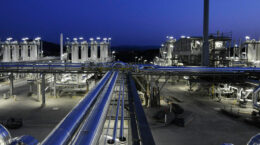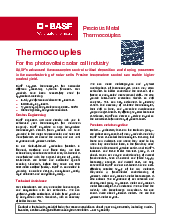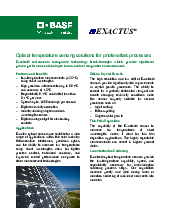At our state-of-the-art production facilities in Fremont, California, and Rome, Italy, we ensure that every instrument is tested and calibrated against exacting standards before it leaves our factory. BASF is committed to providing innovative designs, exceptional quality, and rapid deliveries.
Give yourself control over critical processes in manufacturing
We know that smart and sustainable decisions save money. That’s where our solar solutions come in. An ever-growing need, coupled with a shortage of natural resources, demands that we work to keep the power on.
BASF’s advanced thermocouples control critical processes in the manufacturing of solar cells. Precise temperature control enables a higher product yield. Our engineers will work directly with you to customize your thermocouples for maximum longevity.





